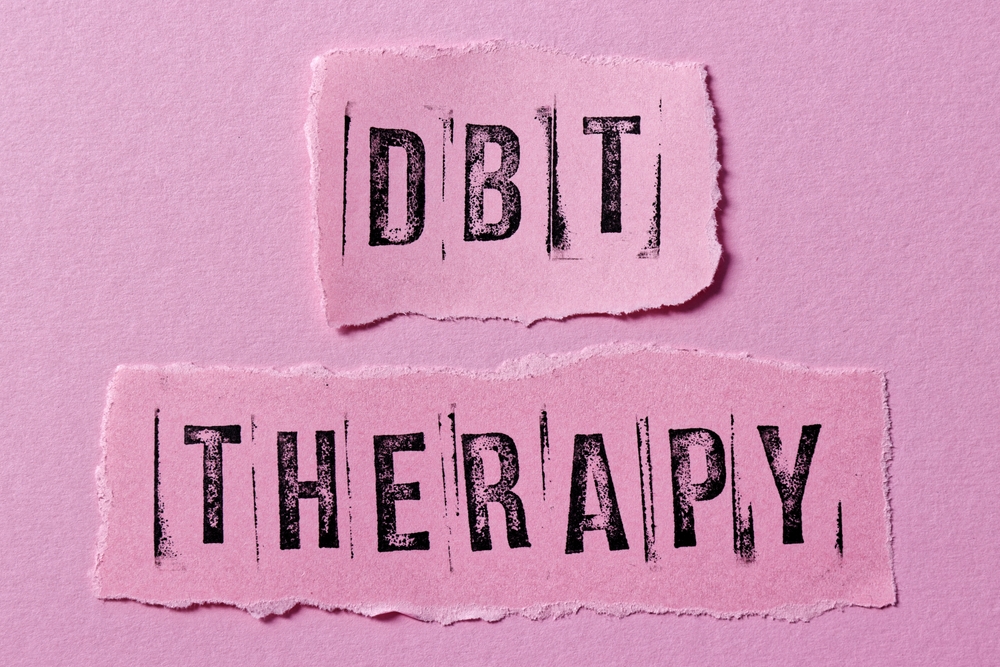Dialectical behavior therapy (DBT) is a form of psychotherapy that combines the practices of cognitive behavioral therapy (CBT) with concepts derived from Buddhist meditative practice. Psychologist Marsha M. Linehan developed dialectical behavior therapy in the late 1980s as a more effective therapeutic method to treat chronically suicidal individuals diagnosed with borderline personality disorder (BPD). It is a rigidly structured therapeutic approach that allows participants to engage in individualized and collective treatment by focusing on the four modules of DBT, which are: core mindfulness (focusing skills), distress tolerance (crisis survival skills), emotion regulation (de-escalation skills), and interpersonal effectiveness (social/ relationship skills). DBT is comprised of three distinct therapeutic settings, including weekly individual therapy sessions; weekly DBT skills training group therapy sessions, and as-needed phone coaching. DBT can be effective for individuals of all ages, and although it was originally developed to treat individuals diagnosed with borderline personality disorder, evidence has shown it to be a successful treatment method for individuals struggling with an array of other mental health conditions. However, nothing is perfect, and as is true with any type of mental health treatment, there are advantages and disadvantages of DBT.
Pros of DBT
DBT is a therapeutic modality that emphasizes the psychosocial aspect of treatment. According to Behavioral Tech, DBT is effective because it “assumes that many of the problems exhibited by clients are caused by skills deficits, [and] it successfully increases clients’ ability to use effective coping skills, particularly strategies for expressing, experiencing, and regulating intense emotions.” Some of the advantages of DBT include, but are not limited to the following:
- Significantly reduces hospital stays, self-injurious behaviors, and the severity of borderline personality disorder symptoms.
- Increases self-worth and self-respect.
- Improves in emotion regulation.
- Reduces experiential avoidance.
- Minimizes assertive anger.
- DBT incorporates Zen Buddhist mindfulness practices, which may be appealing to those that wish to work toward spiritual fulfillment.
- As an added layer of support, participants have twenty-four-hour access to their clinician through the phone coaching component, should crisis arise or for in the moment guidance during times of struggle.
- The weekly DBT skills training group therapy sessions offer participants an emotionally safe environment to begin to implement the DBT skills alongside other people working on similar issues.
- As an evidence-based treatment, DBT extends beyond mental health illness and enhances individuals’ quality of life.
Cons of DBT
While DBT can prove to be highly effective for some individuals, it may be ineffective for others. Consider some of the disadvantages of DBT listed below:
- The foundation of DBT is rooted in mindfulness practice based on Zen Buddhist teachings, therefore some clients (e.g., conservative Jews, Christians, Muslims, etc.) may object to certain facets of DBT that are derived from Eastern religious philosophies.
- Because there is no formal trauma processing in DBT, it may not be well suited for individuals in treatment for trauma-related issues.
- An integral part of the weekly DBT skills training group therapy sessions is assigning homework that corresponds to the DBT skills taught or visited during each session, which some may find burdensome.
- The many skills of DBT may be perceived as overwhelming and discouraging. As a result, some individuals that could benefit greatly from dialectical behavior therapy view it as overly complex to the point that they are unwilling to try the treatment.
- DBT requires a significant time commitment from which may make it less appealing to some.
The information above is provided for the use of informational purposes only. The above content is not to be substituted for professional advice, diagnosis, or treatment, as in no way is it intended as an attempt to practice medicine, give specific medical advice, including, without limitation, advice concerning the topic of mental health. As such, please do not use any material provided above to disregard professional advice or delay seeking treatment.


